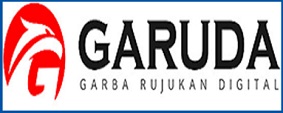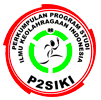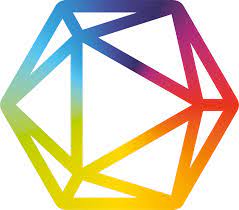The Relationship Between Physical Fitness And Academic Achievement: How Exercise Improves Concentration
Abstract
Physical fitness plays a crucial role in enhancing students' focus and improving their learning outcomes. his study explores the relationship between physical fitness and academic achievement, with a particular focus on how regular exercise improves students' concentration. As educational demands increase, there is a growing need to identify factors beyond the classroom that support cognitive development and academic performance. Research has shown that physical activity positively influences brain function by enhancing blood flow, stimulating neurochemical release, and supporting neurogenesis—factors that contribute to improved focus, memory, and mental alertness. Numerous studies have shown that regular exercise can improve cognitive skills, including attention and memory, which in turn helps enhance academic achievement. This article reviews the relationship between physical fitness and learning outcomes, emphasizing how exercise can improve concentration. The approach used is a literature review, analyzing various existing studies. Findings indicate that good physical fitness can increase blood flow to the brain, increase the production of chemicals that transmit signals in the brain, and improve brain structure through the brain's ability to adapt. The study also highlights the importance of integrating structured physical activity into the school curriculum to promote both physical and academic development. By understanding the connection between fitness and learning, stakeholders in education can make informed decisions that support students' overall well-being and academic success. In conclusion, regular exercise can improve thinking skills and support students' academic achievement
Downloads
References
Presdianto, N. (2024). Pengaruh Tingkat Kebugaran fisik dan Motivasi Berprestasi Terhadap Hasil Belajar Siswa SMAN I Grogol Kediri. Jurnal Prestasi Olahraga, 7(3). https://doi.org/10.1234/jpo.v7i3.59933.
Fathoni, M., & Faruk, M. (2023). Pengaruh Tingkat Kebugaran fisik Terhadap Hasil Belajar PJOK Pada Siswa Kelas VIII UPT SMP Negeri VIII Gresik. Jurnal Prestasi Olahraga, 6(2). https://doi.org/10.1234/jpo.v6i2.54825.
Kamaruddin, I., Ampulembang, A., Hakim, H., Amar, A. M. I. F., & Faturrahman, F. (2024). Pengaruh Olahraga terhadap Konsentrasi Belajar Siswa di UPT SPF SDN Paccinang Kota Makassar. Jurnal Pendidikan Tambusai, 8(2), 27882–27886. https://doi.org/10.31004/jptam.v8i2.17001.
Krissanthy, A., Kurniawan, F., & Resita, C. (2021). Hubungan Kebugaran fisik Terhadap Tingkat Konsentrasi Siswa di SMAN 9 Bekasi. Jurnal Literasi Olahraga, 1(1). https://doi.org/10.35706/jlo.v1i1.3923.
Idham, Z., Neldi, H., Komaini, A., Sin, T. H., & Damrah, D. (2022). Pengaruh Kebugaran fisik, Status Gizi, dan Motivasi Belajar terhadap Hasil Belajar PJOK. Jurnal Basicedu, 6(3), 4078–4089. https://doi.org/10.31004/basicedu.v6i3.2196.
Silitonga, F. A., & Verawati, I. (2021). Hubungan Tingkat Kebugaran fisik dengan Prestasi Belajar Siswa Putra Kelas XI SMA N 1 Sipahutar Tapanuli Utara. Jurnal Kesehatan dan Olahraga, 3(1). https://doi.org/10.24114/ko.v3i1.13069.
Bakti, E. K., Fazarafiki, H., Hastuti, A. T., Handayani, A. P., Septiyani, V., Adelita, Z. M., & Muanisah, S. (2023). Hubungan Kebugaran fisik dengan Prestasi Belajar Siswa SMP Muhammadiyah 6 Semarang. Jurnal Majemuk, 2(3). https://doi.org/10.1234/jm.v2i3.560.
Sunadi, D., Soemardji, A. A., Apriantono, T., & Wirasutisna, K. R. (2016). Tingkat Kebugaran dan Prestasi Belajar. Jurnal Sains Keolahragaan dan Kesehatan, 1(2), 60–66. https://doi.org/10.5614/jskk.2016.1.2.5.
Hidayat, A. S. (2020). Hubungan Tingkat Kebugaran fisik terhadap Prestasi Akademik (Siswa Kelas XI Perawat 2 SMK 10 November Sidoarjo). Jurnal Pendidikan Olahraga dan Kesehatan, 3(1). https://doi.org/10.1234/jpok.v3i1.13503.
Copyright (c) 2025 Rahmat Iqbal, Dikdik Fauzi Dermawan, Rekha Ratri Julianti, Oktaviarini Yahya Rahmadhanty, Fahd Mukhtarsyaf

This work is licensed under a Creative Commons Attribution-ShareAlike 4.0 International License.









